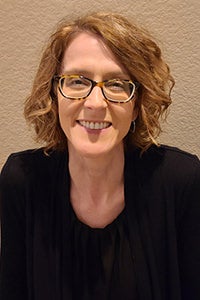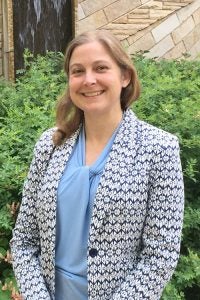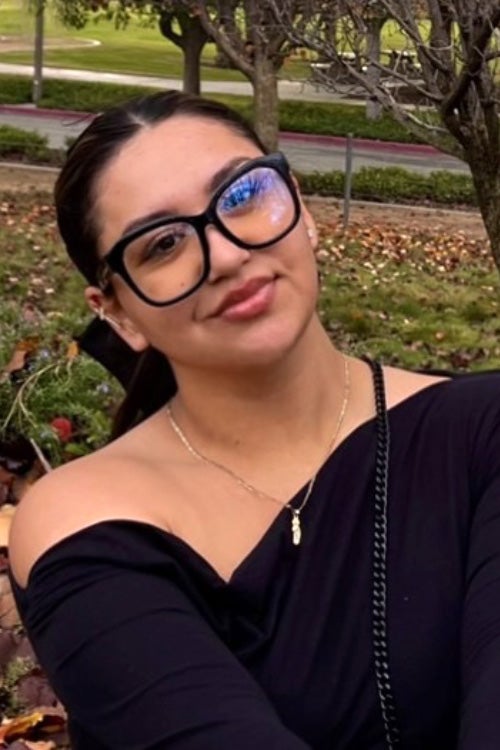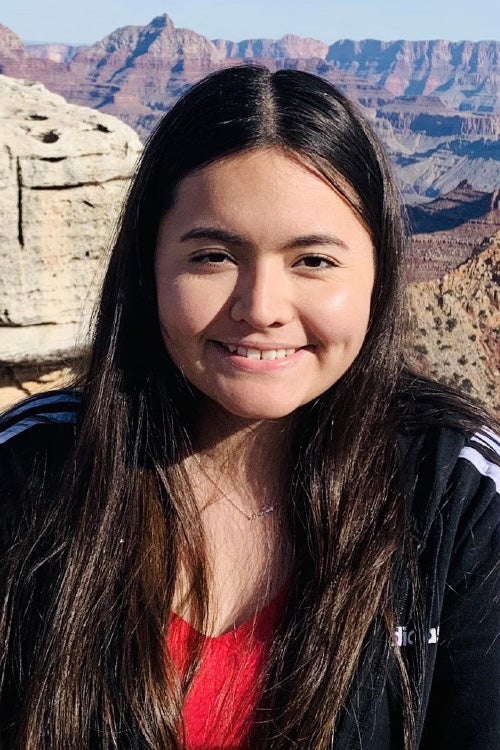
SPYRL: Personnel
| Director | |
|---|---|
| Distinguished Professor Jan E. Stets is an AAAS Fellow, recipient of the Cooley-Mead Lifetime Achievement Award of the ASA Social Psychology Section, and a recipient of the Lifetime Achievement Award of the ASA Emotions Section. She is past Sociology Program Director for the National Science Foundation, and past co-editor of Social Psychology Quarterly. She is the author of 10 books and over 100 articles and book chapters on self, identity, and emotions. She focuses on using and extending identity theory to study individual and interpersonal processes. For more information on identity theory, go to identitytheory.org. | |
| Associate Director | |
| Amy Kroska is a Professor of Sociology at the University of California, Riverside. Her research applies social psychological theories to topics related to gender, mental health, crime, and the family. Her recent studies have used social psychological theories to illuminate the gender gap in business leadership, the sanctioning of white-collar criminals, the connection between a juvenile delinquency adjudication and self-meaning, and the effect of a mental illness diagnosis on group influence, social distancing, and self-meaning. Her earlier studies examined the factors that affect gender ideology, housework divisions, and the affective meanings tied to gendered roles and family work behavior. | |
| Faculty Affiliates | |
| Distinguished Professor (Emeritus) and Professor of the Graduate Division & Faculty Associate Peter J. Burke is an AAAS Fellow and recipient of the Cooley-Mead Lifetime Achievement Award of the ASA Social Psychology Section. He is one of the originators of Identity Theory. His research draws on Complexity Theory, Artificial Intelligence, and Computer Simulation to understand (1) how individuals, acting as agents with particular identities, come together in interaction to create larger aggregates, groups, organizations and societies, and (2) how these social structures constrain and limit the kinds of actions that individuals can take. | |
| Matthew Grindal is an Assistant Professor at the University of Idaho. He is a quantitative sociologist whose research examines the theoretical mechanisms that link ethnic-racial developmental processes to the health and delinquency outcomes of adolescents and young adults. He is specifically interested in the general mechanisms specified by the social psychological literature (e.g., verification, enhancement, perceptions of threat, and intergroup attitudes) and the micro-level mechanisms traditionally employed in criminological theory (i.e. social learning, social bonds, strain, and self-control). | |
| Will Kalkhoff is a professor of sociology at Kent State University. He is director of the Electrophysiological Neuroscience Laboratory of Kent and an executive committee member of the Brain Health Research Institute. He is also past chair of the Evolution, Biology, and Society Section of the American Sociological Association. His research interests include neurosociology and social psychology. Current electroencephalography (EEG) projects focus on the neurodynamics of social cohesion, group processes in challenging task environments, and the neurosociology of human interaction in digital and virtual environments. Dr. Kalkhoff and the ENLoK are also actively engaged in contracted research and development with international companies to improve digital technologies for law enforcement training and the treatment of acute and chronic stress. | |
| Professor Scott V. Savage is Associate Professor of Sociology and Director of Graduate Studies at the University of Houston. He is a micro-theorist who specializes in exchange, identity, and status-organizing processes. His research relies on experimental and quantitative methods to investigate group life and its effects on individuals. He is particularly interested in how the self can both change and be changed by social structures. | |
| Richard T. Serpe is Professor Emeritus in the Department of Sociology at Kent State University. He is a sociological social psychologist who has been working in the area of identity theory for the past forty years. His recent research further contextualizes identity processes in terms of differential placement within the social structure. This research focuses on specifying proximal social structure, defining counter-normative identities, and exploring the relationships between identity processes and self-relevant outcomes, e.g., self-esteem, efficacy, anxiety, depression, and emotions. He is a survey researcher and has conducted or directed over 270 research projects funded by private foundations, public and private organizations, local, state, and federal agencies. | |
| Monica Whitham is an Associate Professor of Sociology at Oklahoma State University. She specializes in social psychology, urban and community sociology, and social networks. Broadly, her work examines processes through which social actors form, maintain, and utilize social connections in order to achieve individual and collective goals. Her research has been funded by the National Science Foundation and has been published in top sociology journals, including the American Sociological Review, Social Psychology Quarterly, and City & Community. | |
| Other Affiliates | |
| Dr. Allison M. Cantwell is the Associate Director of Research for the Institute for Research in the Social Sciences at Colorado State University. Her research interests include student identity, student behavior, and the undergraduate student experience. Allison’s current role in IRISS focuses on the integration of social science research methodology into interdisciplinary scientific research activities to support the research mission of her campus. | |
| Phoenicia Fares is a recent alumnus of the sociology department at the University of California, Riverside. Her research specializations include social psychology, identity processes, digital interaction, and human-computer interaction. She also is a recent User Experience Research Intern at TikTok, where she examined users’ online sentiment and engagement with TikTok. Phoenicia’s research has been published in Social Psychology Quarterly and Social Science Research. | |
| Research Laboratory Manager | |
|
Emily Angelo is a sociology graduate student at the University of California, Riverside. She specializes in social psychology and medical sociology. Emily’s research interests include identity processes, socialization, and dating relationships. Her current research examines identity change in the context of romantic dissolution and how the experience of a romantic breakup affects the self. She has also been involved in research projects focusing on the impact of the Covid-19 Pandemic on identity verification, mental health, and emotions. Emily is currently the manager of UCR’s Social Psychology Research Laboratory (SPYRL). |
|
| Graduate Students | |
| Undergraduate Students | |
|
Teia Blanchette Hello, my name is Teia Blanchette! I am in my last year of undergrad for Sociology. My main interest lies in understanding formal institutions, specifically school/education. |
|
|
Arianna Bolwell My name is Arianna Bolwell, and I'm currently a 2nd year Sociology/Law and Society major at UCR. In the future I aspire to become a Public Health Attorney, and in my free time I enjoy doing hot yoga. |
|
|
Naive Contreras Hello! My name is Naive Contreras. I am a fourth-year sociology major pursuing a minor in administrative studies. I'm seeking to learn more about how research is conducted at UCR. More importantly, I am more than excited to help with research that will help others in the future and help our society gain yet another perspective of itself. I have been a research participant before, and it’ll be a great change for once to be on the other side. I am also looking to go to grad school and what better way to prepare for that than to begin gaining a glimpse of sociology research now and a further understanding of the society that I live in. |
|
|
Anacecelia Farfan Hello, my name is Anacecilia Farfan. I am a 4th year Sociology student at UCR. This will actually be my first research experience, and I am so excited to be a part of this project. I am highly intrigued by field research as well as any hands-on learning. I would love to continue my Sociology career by going into some sort of counseling or teaching in my future. |
|
|
Karissa Francisco Karissa Francisco is an undergraduate Psychology student at the University of California, Riverside, and is planning to minor in Sociology. Karissa plans on pursuing a master's degree in social psychology after obtaining their B.A. in Psychology. Their research interests include the psychological development of gender identity and how it impacts social behavior. Currently, Karissa is involved in UCR's Psi Chi chapter as a mentor for the First Year Lay Member Program. |
|
|
Jennifer Gallardo Hi, my name is Jennifer Gallardo. I'm currently a 4th year here at the University of California, Riverside in the process of getting my BS in Sociology and Philosophy. I'm planning on becoming a social researcher in the future. My interests in research currently revolve around identity and gender. |
|
|
Melany Gil My name is Melany Gil, and I am a fourth-year Sociology major with a minor in Public Policy. As a commuter student from San Bernardino, I am currently interning with the city’s Public Works Department. On campus, I am actively engaged with the CARE office, where I serve as the SAVE program coordinator for this academic year. Following my studies at UCR, I plan to pursue a Master’s in Public Health to further my commitment to community development in my area. |
|
|
Aye Aye Htet My name is Aye Aye Htet. I am from the Bay Area, California but I am originally from Myanmar. I moved to America with my family four years ago. I am a second year sociology and anthropology major. I also work as a Resident Advisor in the UCR dorms. Some fun facts about me are that I love coffee and cats! |
|
|
Carol Huang I am currently a fourth-year Sociology major, working on declaring a Computer Science minor. I'm volunteering at this social psychology research lab study to broaden my perspective and experience in sociology and gain more hands-on experiences to prepare myself for future jobs and projects. I hope at the end of this experience, I have gained meaningful connections with my peers, improved my communication and collaboration skills, and found the areas of study I am most passionate about. |
|
|
Malia Muraoka My name is Malia Muraoka and I am a 4th year sociology student here at UCR. Through my undergrad, I have always worked service jobs. Studying sociology through this time has given me the ability to make informal observations about the customers I serve. I enjoy sharing what I have learned thus far with my family and friends! Through my undergrad, I have grown my interest within gender studies. In my free time, I enjoy vintage fashion with my loved ones. My education has given me a sociological lens that allows me to enjoy fashion on a deeper level. Together we meticulously chose the pieces that feel inspired by. What excites me the most is the agency we hold through everyday fashion choices and how they impact others' perception of us. |
|
|
Yasmin Parham Castellanos I am a Los Angeles native that graduated high school in 2020. Despite never visiting the Inland Empire, I decided to study at University of California, Riverside. I initially was accepted as a Biology major; however, I found a calling to Sociology. It allowed me to create an understanding behind a person's actions. Once acclimated to the high temperatures, I now consider Riverside a special place. |
|
|
Jocelyn Torres Gatica Jocelyn Torres Gatica is working towards completing her BA in Sociology. |
|






















